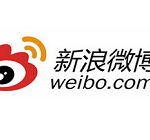The much vaunted ‘China model’ of economic growth has generated an ever-growing body of discourse as China has become the second largest economy. An important component of this model is internet censorship with its implications for china and the rest of the world.
Billionaire tycoon Charles Xue and civil rights activist Wang Gongquang – influential bloggers that boast Weibo followers in the excess of 20 million – were taken into custody by the Chinese Communist Party (CCP) this week on accusations of defamation. This was the direct outcome of a new law, reminiscent of the Mao era, which states: “users that post or re-post rumours that are viewed over 5000 times or receive 500 shares will be charged with defamation and face a penalty of up to 3 years in jail”. On Monday, Xue appeared on state TV – seemingly under duress – confessing to posting ‘irresponsible rumours’ and soliciting prostitution. These developments are not a spontaneous reaction to an event but a part of a greater design to police the internet.
The CCP understands the socio-political implications of online media. The famous trio — Facebook, Youtube and Twitter— have been banned in China since 2009. Instead, in a classic display of Chinese pragmatism (and copy cat-ism) they allowed the proliferation of these popular sites— Ren Ren (Facebook) , Youku (Youtube), Sina Weibo (Twitter)—among others. Governments that relied on heavy information control to govern were unable to successfully adapt to an age in which individuals became agents of information and media. China remains the only true exception.
The “Chinese Dream” that president Xi Jinping often waxes about does not include a free internet; instead in China the laws of the physical world will be increasingly used to police the virtual world. By creating legal maneuverability to crackdown on perceived dissidents, the CCP has set a dangerous precedent for internet governance and revealed what the China model really means. Given the relative absence of independent traditional media, social media means more to the Chinese than outsiders understand, and these new policies will certainly antagonise the people against the party.
Compiled by: Dev Lewis
This blog was exclusively written for Gateway House: Indian Council on Global Relations. You can read more exclusive content here.
For interview requests with the author, or for permission to republish, please contact outreach@gatewayhouse.in.
© Copyright 2013 Gateway House: Indian Council on Global Relations. All rights reserved. Any unauthorized copying or reproduction is strictly prohibited


